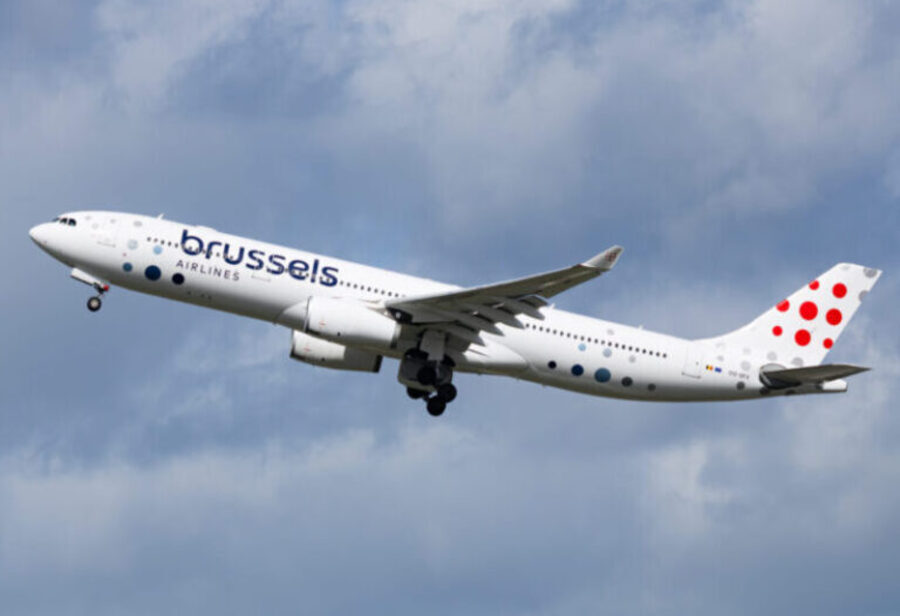Published on
August 29, 2025
Brussels Airlines is reinforcing its position in Europe by adding five new Airbus A320neo aircraft to its fleet, a move designed to expand capacity and strengthen connectivity with strategic markets in France and Italy. The modern jets not only allow the airline to meet growing passenger demand but also align with its sustainability goals, offering greater fuel efficiency and lower emissions across its European network.
Brussels Airlines continues to modernize its operations and strengthen its market presence by investing in new aircraft and upgraded passenger services. The airline introduced its first Airbus A320neo at the end of 2023 and currently flies five of the type. Three more are expected to join in the coming months, while another five are scheduled for delivery starting in 2027 once board approval is secured.
Modernization Through the A320neo
The A320neo plays a central role in the airline’s short- and medium-haul operations. By design, the aircraft consumes less fuel, emits fewer greenhouse gases, and operates more quietly than older models. It also offers passengers more storage space for cabin baggage, addressing one of the most common travel challenges.
The airline has ordered five additional units, of which four will directly replace aging aircraft, ensuring that its fleet remains efficient and reliable. The remaining unit will serve as an expansion aircraft, allowing the airline to add capacity on popular routes. With this approach, the company reduces its ecological footprint, maintains cost efficiency, and improves the overall travel experience.
Commitment to Sustainability
By investing in the A320neo, the airline strengthens its long-term pledge to operate more sustainably. The aircraft’s improved fuel efficiency directly cuts carbon emissions, while its quieter engine technology reduces noise levels for communities living close to airports. Together, these advancements support the broader aviation objective of building a greener industry and complying with upcoming environmental standards.
Fleet renewal also improves operational performance. Modern aircraft deliver higher dispatch reliability and lower maintenance requirements, reducing the chances of disruption while offering passengers a smoother travel experience. This balance of efficiency and comfort allows the airline to remain competitive in a challenging European market.
Expansion of Long-Haul Operations
In addition to the modernization of its medium-haul fleet, Brussels Airlines is preparing to enhance its intercontinental offering. Plans include expanding the Airbus A330 fleet to 13 aircraft and introducing newly designed cabins across long-haul routes beginning in 2027. These upgrades will provide passengers with improved seating, better inflight entertainment, and a more comfortable travel environment on journeys between Europe and other continents.
The airline plans to upgrade its ground services by transforming its main lounge at Brussels Airport. The Loft, its flagship facility for passengers, will be completely redesigned to offer more room, modernized amenities, and a smoother experience before departure.
Strong Summer Travel Season
The announcement of new investments came after a successful summer travel season, which highlighted growing passenger demand. The airline carried almost 2 million travelers on just under 13,000 flights during the holiday period, marking a 12 percent increase compared with the previous year.
From 21 to 27 July, the airline recorded its peak week of the summer, transporting nearly 235,000 travelers on close to 1,500 flights. The surge in traffic reflected not only the height of the holiday season but also the influence of major international events that attracted visitors from across the globe.
Popular Destinations
Passenger demand concentrated heavily on leisure routes, particularly toward Southern Europe. Málaga, Barcelona, Lisbon, Porto, and Geneva ranked among the most popular destinations. These routes highlight a strong preference for sun, culture, and coastal experiences among travelers departing from Brussels.
The network also balanced demand for both city breaks and holiday resorts, underlining the importance of maintaining a diverse schedule of flights to meet different market needs. By combining high-frequency routes to European cities with seasonal leisure destinations, the airline maximized passenger loads during the peak months.
Operational Performance
Although punctuality dropped slightly during the summer due to external factors such as air traffic control strikes in France and Italy, the airline achieved improvements in other areas of operations. Check-in and baggage drop-off at Brussels Airport became faster and more efficient, thanks to the growing use of automated systems. Record numbers of passengers used self-service facilities, reducing waiting times and improving the flow of travelers through the airport.
These operational improvements helped offset the impact of delays caused by circumstances beyond the airline’s control. By investing in automation and streamlining ground services, the carrier positioned itself to handle future growth more effectively.
Outlook for the Future
Brussels Airlines’ strategy combines short-term efficiency with long-term expansion. The immediate focus remains on fleet renewal through the A320neo, which supports both environmental goals and passenger satisfaction. Over the coming years, the airline will also direct resources toward strengthening its intercontinental network with additional A330s and enhanced cabin experiences.
The investment in ground infrastructure, including the complete redesign of its main lounge, complements this fleet expansion. Together, these steps aim to deliver a modern, efficient, and comfortable journey for passengers from the moment they arrive at the airport until the end of their flight.
Building on Growth Momentum
The positive results from the summer season suggest that passenger confidence continues to grow, even in the face of operational challenges across the European aviation sector. A strong demand base allows the airline to pursue investments with confidence, knowing that its network continues to attract both leisure and business travelers.
Brussels Airlines is strengthening its European footprint by adding five Airbus A320neo aircraft, boosting capacity and enhancing connectivity to key markets in France and Italy while advancing efficiency and sustainability goals.
As the airline integrates more modern aircraft into its fleet, enhances its intercontinental offering, and renovates passenger facilities, it positions itself to remain competitive in a rapidly changing industry. With sustainability, efficiency, and customer experience as central priorities, the carrier lays the foundation for sustainable growth well into the next decade.
